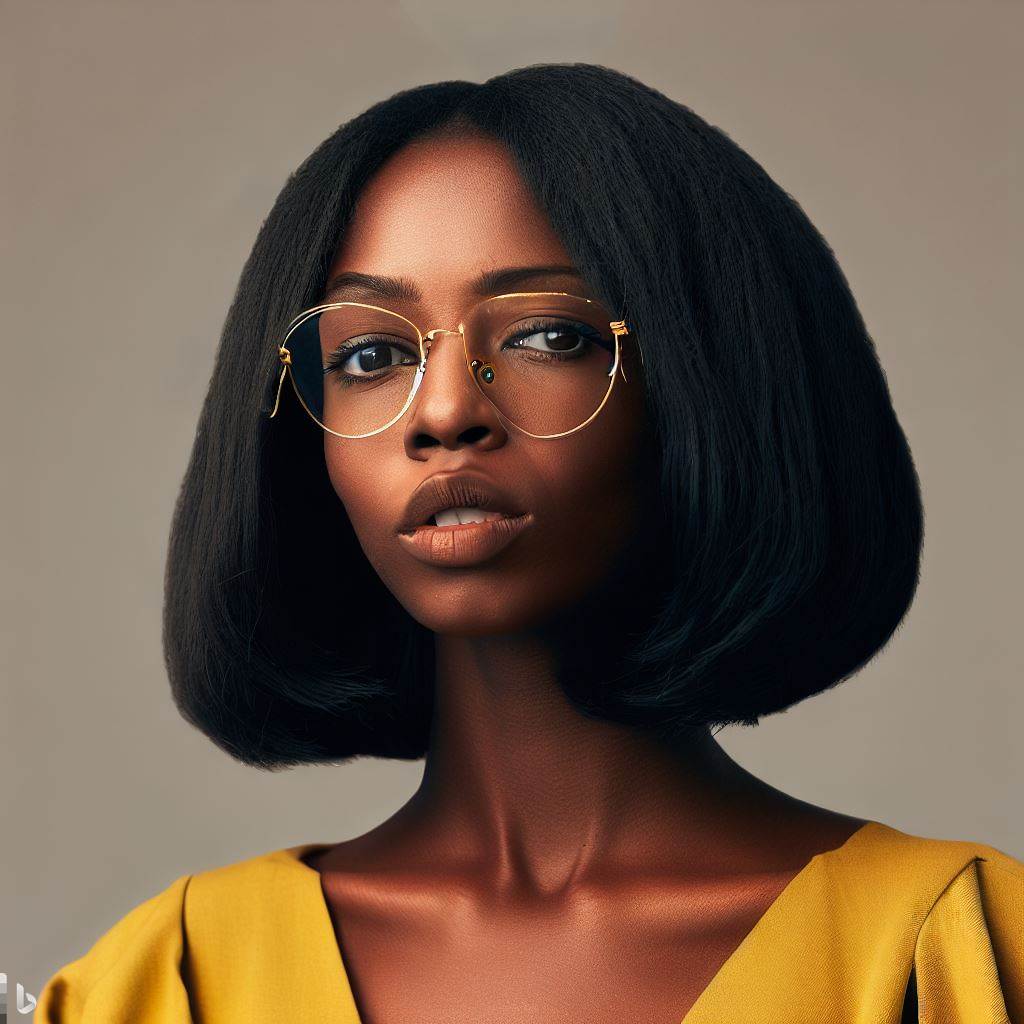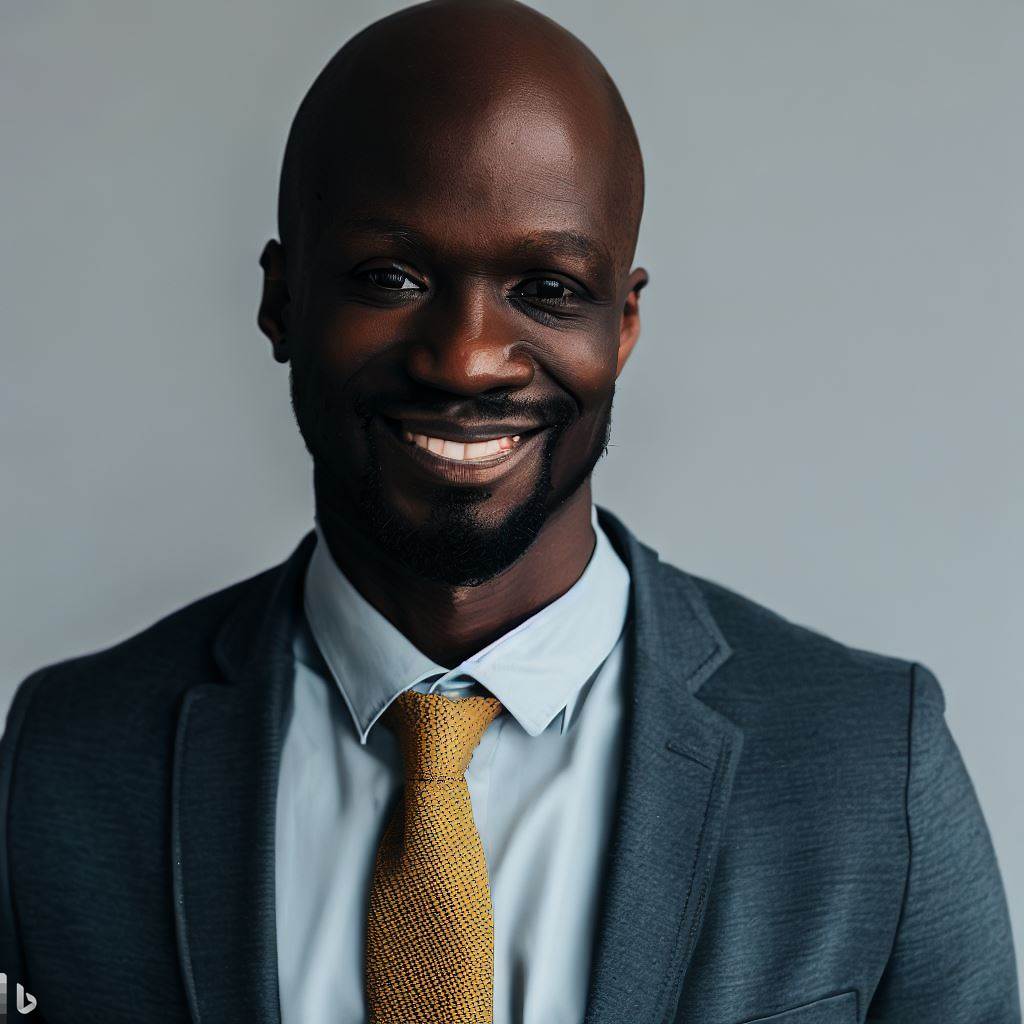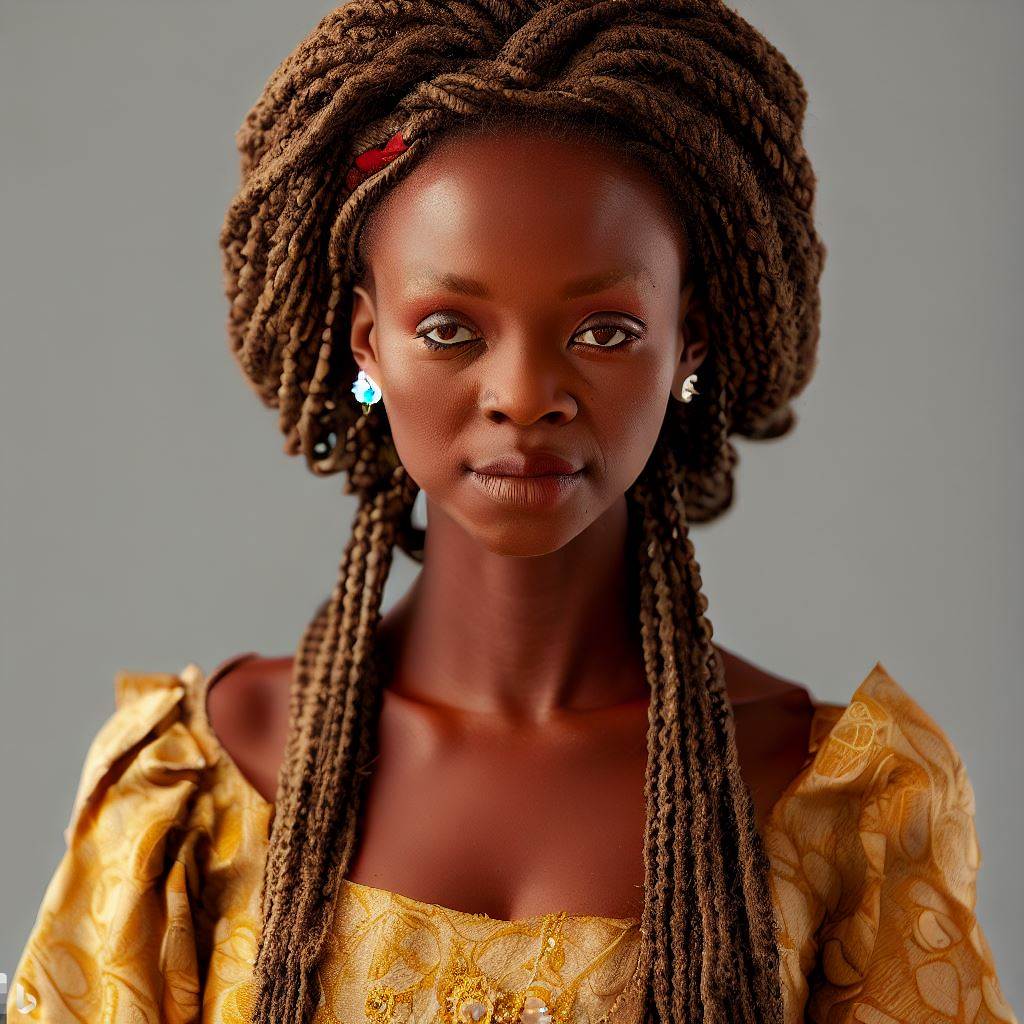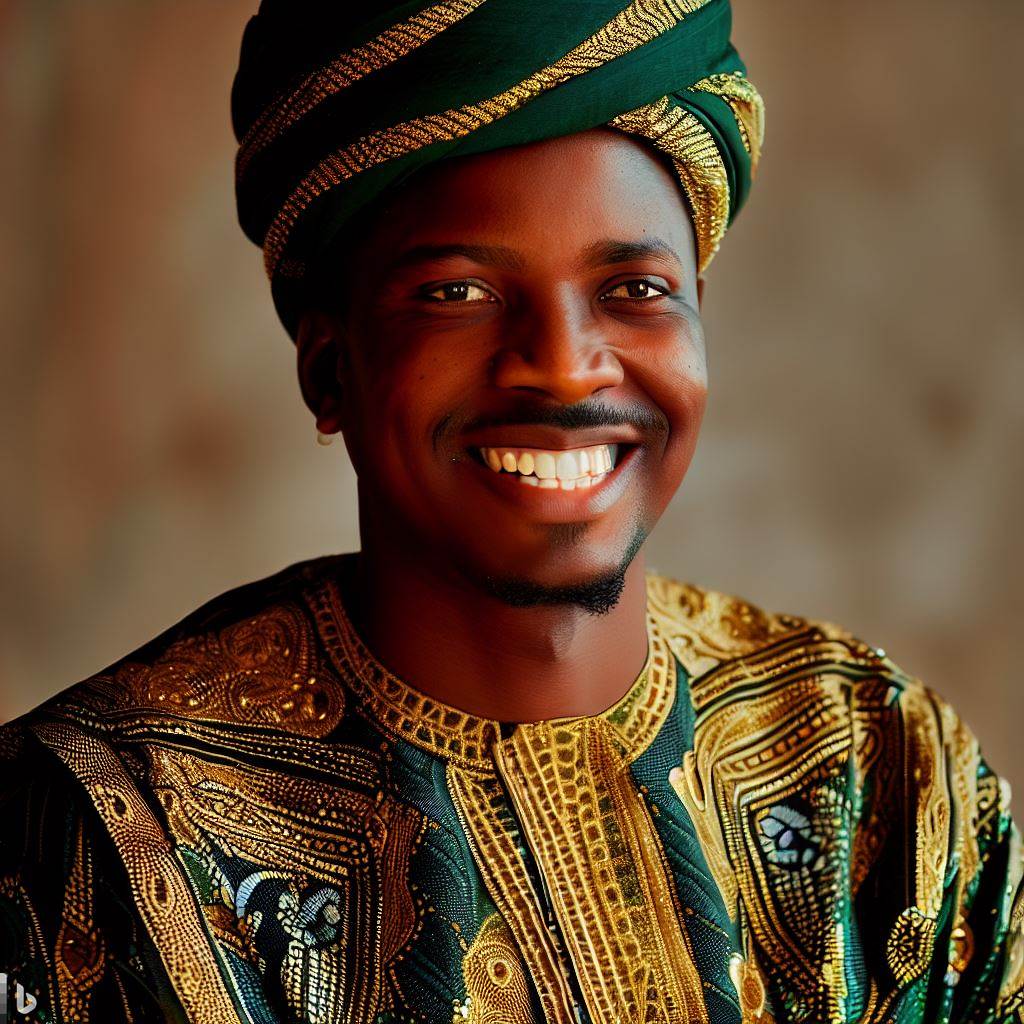Introduction to Nigerian costume designers and their contribution to the fashion industry
Nigeria, a vibrant and diverse country in West Africa, has gained significant acclaim in recent years for its thriving fashion industry.
Costume designers in Nigeria have been instrumental in shaping and revolutionizing the fashion landscape with their unique creativity and innovative designs.
The Nigerian fashion industry has seen tremendous growth and development, showcasing a blend of traditional and contemporary styles.
It draws inspiration from the country’s rich cultural heritage, incorporating elements of various Nigerian tribes and ethnic groups.
This fusion of traditional and modern aesthetics has carved a niche for Nigerian costume designers in the global fashion scene.
The recognition and influence of Nigerian fashion have transcended borders, captivating the attention of international fashion enthusiasts and industry professionals.
Nigerian designers have gained international prominence through participation in renowned fashion events such as Lagos Fashion Week and African Fashion Week London.
Designers like Lisa Folawiyo and Ituen Basi have made significant contributions to the fashion industry, receiving accolades for their use of vibrant African prints and contemporary silhouettes.
They have become trendsetters, inspiring fashion lovers across the world to embrace the beauty of Nigerian fashion.
In addition to their creative designs, Nigerian costume designers have played a crucial role in empowering local artisans and promoting sustainable fashion practices.
They have prioritized the use of locally sourced materials, supporting local artisans and preserving traditional craftsmanship.
Basically, Nigerian costume designers have emerged as trailblazers, revolutionizing the fashion industry with their unique creativity and commitment to showcasing Nigerian culture.
Their contributions have not only influenced the global fashion landscape but have also empowered local communities and artisans.
Nigerian fashion is undoubtedly on the rise, and these designers are leading the way towards a more inclusive and diverse industry.
Historical Context of Nigerian Costume Design
Nigeria is rich in cultural heritage, and its costume design has a deep historical context.
Traditional Nigerian clothing holds great significance as it represents the diversity of ethnic groups and cultural traditions in the country.
The historical evolution of Nigerian fashion has seen a transformation from traditional to modern costume design.
A. Historical context of Nigerian costume design
- Nigerian costume design dates back centuries, influenced by various factors like colonization, trade, and cultural interactions.
- Traditional Nigerian clothing is an integral part of the country’s cultural identity, reflecting the diverse ethnic groups.
- Nigeria’s costumes are known for their vibrant colors, intricate patterns, and unique styles.
B. Traditional Nigerian clothing and its significance
- Traditional Nigerian clothing varies across different regions, showcasing unique cultural practices and beliefs.
- The “Agbada” is a flowing gown worn by Nigerian men, symbolizing wealth, authority, and prestige.
- Women’s traditional clothing includes the “Iro” (wrapper) worn around the waist, the “Buba” (blouse), and the “Gele” (headwrap).
- These traditional costumes highlight the richness and diversity of Nigerian culture, promoting a sense of identity and pride.
C. Historical evolution of Nigerian fashion
- Over the years, Nigerian fashion has evolved from traditional costumes to incorporate Western influences and modern designs.
- The colonial era introduced European fashion styles, leading to a fusion of traditional and Western elements in Nigerian clothing.
- Nigerian designers started experimenting with new styles, fabrics, and embellishments, giving birth to a unique fashion aesthetic.
- The Nigerian fashion industry gained international recognition through prominent fashion shows and events, showcasing the talent and creativity of local designers.
D. Evolution of Nigerian fashion from traditional to modern costume design
- Traditional Nigerian clothing served as a foundation for the modern costume design seen today.
- Nigerian designers began incorporating traditional elements into contemporary designs, creating a fusion of old and new.
- Fabrics like Ankara, Adire, and Aso-oke became popular in Nigerian fashion, celebrating the country’s textile heritage.
- Nigerian fashion designers embraced innovation, using technology and social media to promote their designs globally.
In review, Nigerian costume design has a rich historical context, reflecting the country’s cultural diversity.
Traditional Nigerian clothing holds immense significance as it represents ethnic traditions and promotes cultural identity.
Over time, Nigerian fashion has evolved from traditional to modern costume design, incorporating Western influences while maintaining its unique heritage.
The creative genius of Nigerian designers has put the country’s fashion industry on the global map, making Nigeria a force to be reckoned with in the world of fashion.
Read: Skillsets Required for a Successful Costume Designer in Nigeria
Rise of Nigerian Costume Designers
The fashion industry in Nigeria has witnessed a significant transformation over the years, with the emergence of talented and innovative Nigerian costume designers.
These designers have not only gained recognition locally but have also made a mark on the international fashion scene.
A. The emergence of Nigerian fashion designers in the industry
- The rise of Nigerian fashion designers has been a result of their exceptional skills and creative abilities.
- These designers have embraced traditional Nigerian aesthetics while infusing contemporary elements into their designs.
- They have successfully showcased the rich cultural heritage of Nigeria through their exquisite costumes.
- Nigerian designers have been able to create a unique identity for themselves by incorporating vibrant colors, intricate patterns, and traditional fabrics in their collections.
- They have gained recognition for their ability to blend traditional and modern styles, creating ensembles that are both trendy and culturally significant.
B. Their unique styles, creativity, and innovative designs
- Nigerian costume designers are known for their avant-garde styles and their ability to push boundaries in the fashion industry.
- They have revolutionized traditional Nigerian attires by incorporating unconventional silhouettes and experimental cuts.
- These designers are not afraid to take risks and experiment with new materials, resulting in bold and distinctive designs.
- They have introduced innovative techniques such as fabric manipulation, laser cutting, and digital printing in their creations.
- Nigerian costume designers are constantly pushing the envelope and introducing fresh and exciting designs that captivate audiences worldwide.
C. The impact of social media in promoting Nigerian fashion designers
- Social media platforms have played a significant role in the rapid success of Nigerian fashion designers.
- Designers utilize platforms like Instagram, Twitter, and Facebook to showcase their collections and reach a global audience.
- Social media has provided a platform for these designers to connect directly with potential customers and engage in influencer collaborations.
- Bloggers and fashion influencers have played a pivotal role in promoting Nigerian designers, sharing their creations with their followers.
- Through social media, Nigerian costume designers have gained international visibility and have attracted the attention of fashion enthusiasts and industry professionals.
In essence, Nigerian costume designers have emerged as game-changers in the fashion industry.
Their unique styles, creativity, and innovative designs have not only solidified their place in the Nigerian fashion scene but have also garnered international recognition.
With the help of social media, these designers have been able to showcase their talent to a global audience and make a significant impact in the fashion world.
Read: Challenges Faced by Costume Designers in Nigeria Today
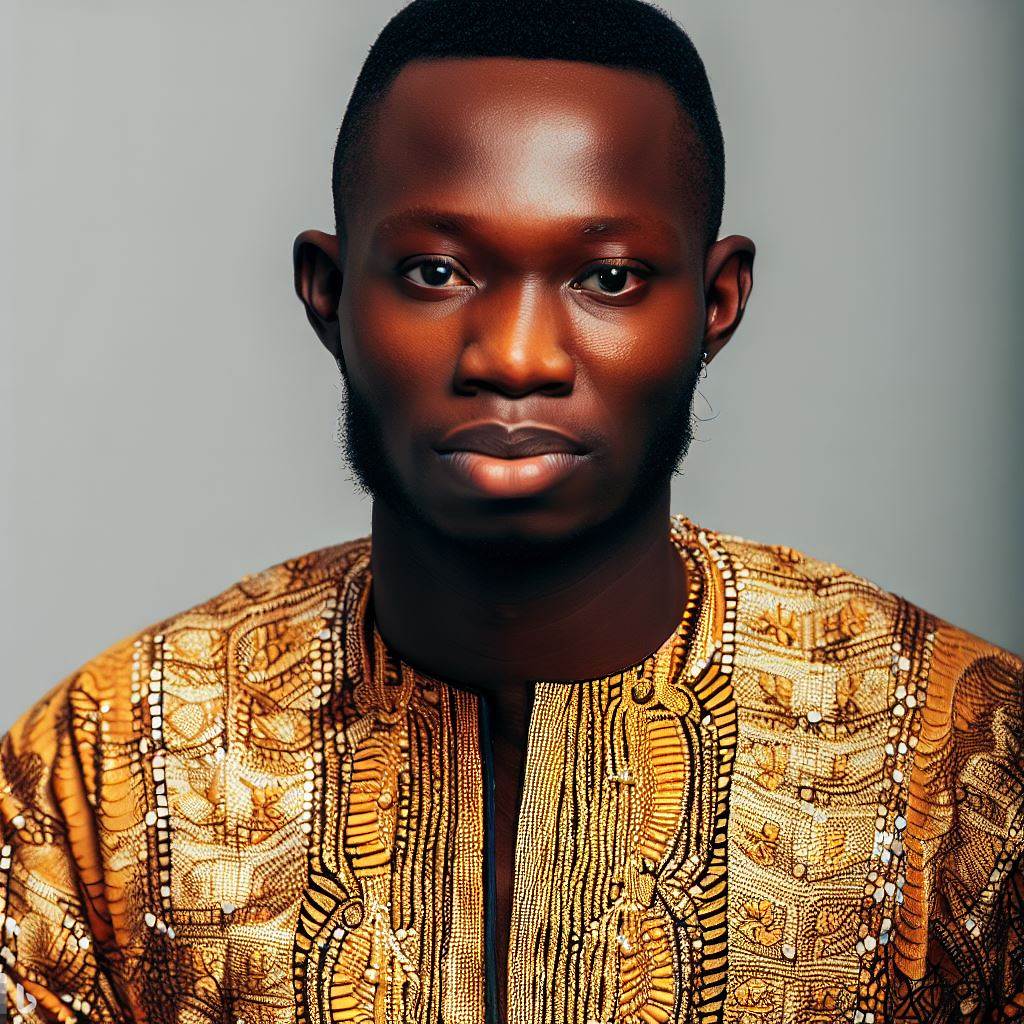
Representation and Inclusivity in Nigerian Costume Design
When it comes to costume design, Nigerian designers are setting a new standard by embracing diversity and inclusivity in their designs.
With a rich cultural heritage, they incorporate traditional Nigerian fabrics, patterns, colors, symbols, and motifs to create unique and vibrant outfits that tell a story.
A. Embracing Diversity in Designs
Nigerian costume designers understand the importance of representation and strive to create designs that cater to people of all backgrounds.
They embrace diversity by using models of different ethnicities, body types, and ages to showcase their creations.
By doing so, they challenge the traditional standards of beauty and provide a platform for aspiring models who have been underrepresented in the fashion industry.
This inclusivity allows individuals from various backgrounds to feel seen, heard, and celebrated.
B. The Use of Traditional Nigerian Fabrics, Patterns, and Colors
Nigerian costume designers take immense pride in their cultural heritage and showcase it through the use of traditional fabrics, patterns, and colors.
Fabrics like Ankara, Adire, and Aso-Oke are frequently used in their designs.
Ankara, a vibrant and colorful fabric, is often seen in dresses, skirts, and blouses. Adire, a fabric made through the resist-dyeing technique, brings uniqueness and cultural significance to outfits.
Aso-Oke, known for its intricate weaving patterns, adds a touch of elegance and tradition.
Through these fabrics, Nigerian costume designers promote their rich cultural history and preserve traditional craftsmanship, ensuring it remains relevant in a modern context.
C. Incorporation of Cultural Symbols and Motifs
To celebrate Nigerian culture and tell stories visually, costume designers incorporate cultural symbols and motifs into their designs.
These symbols can be anything from traditional tribal patterns to symbols representing deities and historical events.
For example, the use of the Adinkra symbols from Ghana adds a deeper meaning to the designs, conveying messages of wisdom, unity, and strength.
Such incorporation allows individuals wearing these designs to connect with their heritage and embrace their cultural identity.
Nigerian costume designers are changing the game by going beyond just creating beautiful outfits, but by also using textiles, colors, and symbols to evoke a sense of pride and belonging in individuals.
In a nutshell, Nigerian costume designers are leading the way in embracing diversity and inclusivity in their designs.
Through the use of traditional fabrics, patterns, colors, cultural symbols, and motifs, they provide a platform for representation and celebrate Nigerian culture.
By showcasing a wide range of models and incorporating elements from different ethnic groups, they challenge the status quo and redefine beauty standards in the fashion industry.
These designers are not only changing the game but also empowering individuals to embrace their identity and heritage through fashion.
Read: Modern Trends in Interior Designing: Nigeria’s Perspective
Discover More: Fashion Photography in Nigeria: Glamour Meets Talent
Nigerian Costume Designers Revolutionizing the Global Fashion Scene
A. Nigerian designers who have gained international recognition and success
In recent years, Nigerian costume designers have emerged as key players in the global fashion scene.
These talented individuals have not only gained international recognition but have also achieved remarkable success.
One such designer is Lisa Folawiyo, whose eponymous label has become a staple for celebrities and fashionistas.
B. Their collaborations with global fashion brands or celebrities
- Folawiyo’s designs combine traditional Nigerian textiles with contemporary silhouettes, creating unique and vibrant pieces.
- Her work has been featured on the runways of major fashion weeks around the world, including New York and Paris.
- Another Nigerian designer making waves is Deola Sagoe, renowned for her innovative take on traditional African clothing.
- Sagoe’s designs have caught the attention of global fashion brands, leading to collaborations with renowned companies like Gucci and Coca-Cola.
- She has also dressed several international celebrities, including Oprah Winfrey and Will Smith.
These collaborations have not only elevated the Nigerian fashion industry but have also showcased its rich cultural heritage to the world.
C. How they have challenged conventional fashion norms and brought Nigerian fashion to the forefront
Furthermore, Nigerian designers have challenged conventional fashion norms and brought their unique aesthetics to the forefront.
- Zainab Ashadu, known for her luxury handbag brand Zashadu, uses Nigerian craftsmanship to create exquisite leather bags.
- Her designs have received widespread acclaim, and she has collaborated with international brands like Christian Louboutin.
- Similarly, Adebayo Oke-Lawal’s brand Orange Culture challenges gender norms by designing gender-fluid clothing.
- His avant-garde designs have gained attention both locally and internationally, including features in Vogue and Elle magazines.
These designers and many others have played a crucial role in putting Nigerian fashion on the global map.
They have not only shattered stereotypes about African fashion but have also showcased its creativity, craftsmanship, and diversity.
The growing international recognition of Nigerian designers has not only boosted their careers but has also opened doors for emerging talents.
Young creatives in Nigeria now have more opportunities and platforms to showcase their designs and make their mark in the industry.
Overall, Nigerian costume designers have revolutionized the global fashion scene with their unique designs and collaborations.
They have successfully challenged conventional norms and brought Nigerian fashion to the forefront of the industry.
As the world recognizes the talent and creativity of Nigerian designers, the future of the country’s fashion industry looks incredibly promising.
Read: Tips for Aspiring Photographers: Building a Portfolio in Nigeria
Economic and Cultural Impact of Nigerian Costume Designers
Nigerian costume designers have been making waves in the fashion industry, not just in Nigeria but globally as well.
These designers have not only contributed to the country’s economy but have also played a significant role in preserving and promoting Nigerian culture and heritage.
A. The economic contributions of Nigerian fashion industry
The economic contributions of the Nigerian fashion industry cannot be overlooked. Nigerian designers have created job opportunities for many, both directly and indirectly.
The industry has employed countless models, tailors, makeup artists, photographers, and event planners, among others. This has led to an increase in economic activities and a boost to the country’s GDP.
B. The empowerment of local artisans through their collaborations with designers
One of the remarkable aspects of Nigerian costume designers is their collaboration with local artisans.
These collaborations have provided employment and empowerment to these artisans.
By working alongside designers, these artisans have been able to showcase their skills and talent to a wider audience, gaining recognition and appreciation for their craft.
This has not only improved their income but also their self-esteem and societal standing.
Beyond contributing to the economy, Nigerian costume designers have been instrumental in promoting Nigerian culture and heritage.
Through their designs, they bring to life traditional Nigerian clothing styles and fabrics.
This helps in preserving and showcasing the rich cultural heritage of the diverse Nigerian tribes.
The use of vibrant colors, intricate patterns, and traditional elements in their designs has caught the attention of the international fashion industry, giving a global platform to Nigerian culture.
C. The cultural influence and promotion of Nigerian heritage through costume design
The cultural influence of Nigerian costume designers extends beyond the fashion industry.
Their use of traditional Nigerian fabrics and styles has inspired many other creative fields, including interior design, art, and even music.
Nigerian fashion has become a symbol of pride and identity for Nigerians both at home and abroad, creating a sense of unity and belonging.
These designers have also been at the forefront of promoting the “Buy Nigerian, Wear Nigerian” movement. This movement encourages Nigerians to support local designers and buy locally made clothing.
By doing so, they not only contribute to the growth of the Nigerian fashion industry but also reduce the country’s dependence on foreign imports.
This has had a positive impact on the economy, as it encourages local production, creates job opportunities, and promotes sustainability.
In fact, Nigerian costume designers have made substantial economic and cultural contributions. They have uplifted local artisans, promoted Nigerian heritage, and stimulated economic growth.
Their work has not only earned recognition and acclaim globally but has also instilled a sense of pride and identity among Nigerians.
The future looks promising as Nigerian designers continue to change the game and make their mark on the global fashion industry.
Conclusion
Nigerian costume designers have ignited a fashion revolution, blending tradition with innovation, setting global trends, and redefining style.
Their influence extends beyond borders, showcasing Nigeria’s rich culture and creativity on prestigious runways and in Hollywood blockbusters.
These designers have not only dressed stars but also contributed significantly to the nation’s economy and the global fashion landscape.
Publish Your Professional Profile, Business or Brand
Showcase your expertise, gain trust, and boost visibility instantly on Professions.ng.
Publish NowAs the world celebrates their achievements, the future gleams brightly for Nigerian costume designers, promising continued growth and innovation.

